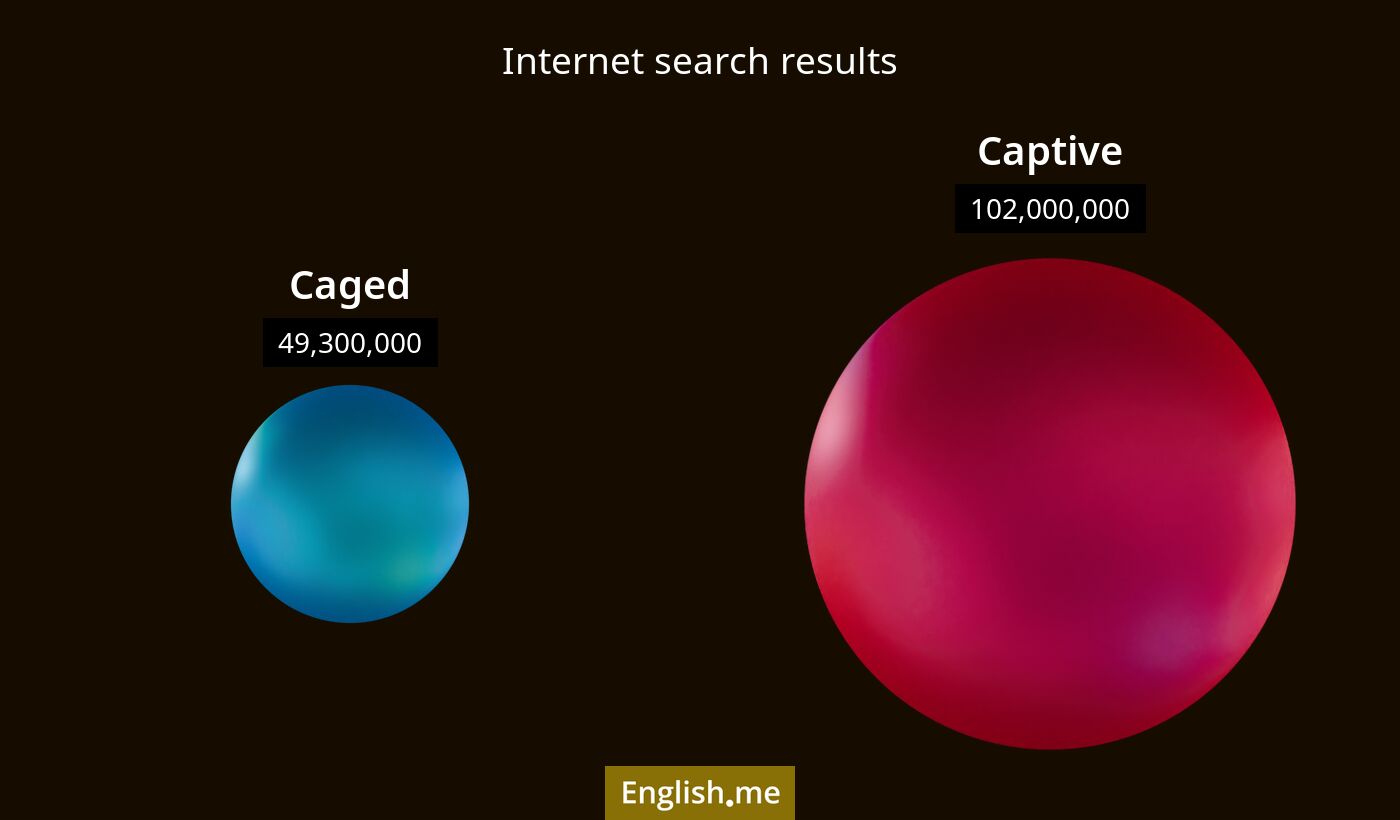Unchaining meanings: exploring "caged" vs "captive"
Reviewed and edited by  Lloyd Cooper 13/10/2024, 04:12
Lloyd Cooper 13/10/2024, 04:12
English.me team member

 What is similar?
What is similar?
Both "caged" and "captive" refer to being confined or restrained against one's will. They are often used in contexts involving animals or people who are prevented from leaving or moving freely.
 What is different?
What is different?
"Caged" specifically suggests being placed in a cage, a physical barrier that encloses, typically referring to animals. "Captive" is more general and can apply to people or animals, emphasizing the state of being held under control or in custody, not necessarily in a cage.
 Which one is more common?
Which one is more common?

 Examples of usage
Examples of usage
Caged- The lion was caged in the zoo for public viewing.
- After the storm, the birds were found caged in their aviary.
- She felt like her creativity was caged by the monotonous job.
- The soldiers were held captive for several months.
- The audience was kept captive by the riveting performance.
- Many wild animals become captive due to loss of habitat.

 English
English español
español française
française italiano
italiano deutsche
deutsche 日本語
日本語 polski
polski česky
česky svenska
svenska Türkçe
Türkçe Nederlands
Nederlands